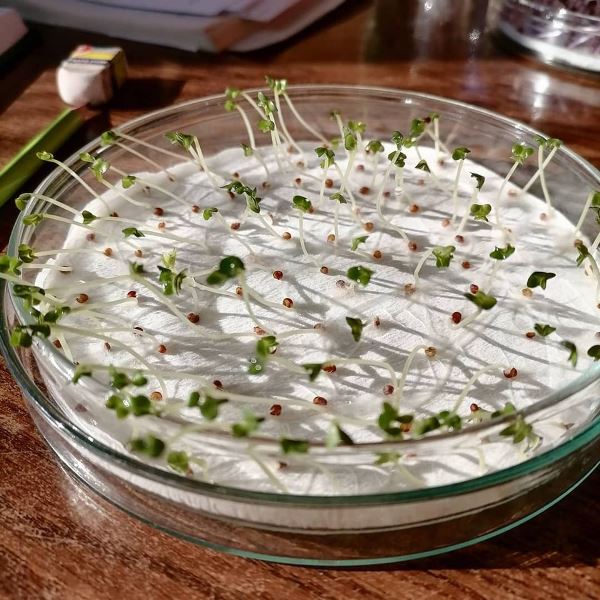Department of Plant Disease and Pest Control
Studying the biology and epidemiology of plant disease causers, as well as the biology and prognosis of appearance of economically significant pests and weeds aims to find the most efficient measures for its control and to transfer the knowledge to the farmers as a recommendation for control of diseases, insects and weeds. Within this department, the researchers deal with protection of vegetable and field crops from pests, disease causers and weeds. Also, researchers from this department follow the whole seed production in all stages, at the Institute and in cooperation. They give advices and enable the protection of crops from pests, weed and insects. During this time of season, intern approbations are done in order to follow the health of the crops and seed.
Seed storages are infection, insect and rodent controlled under the supervision of researchers of this Department in order to enable quality conditions for seed storage. Besides the conventional methods of plant protection, some biological measures in pathogen control and its usage are being tested in vitro and in vivo at this department. These researches aim to improve vegetable production in Serbia towards obtaining health safe food and ecologically acceptable and sustainable production of vegetables. The researchers of this Department actively cooperate with colleagues from Genetic Department and commonly participate in creation of tolerant and resistant hybrids and varieties. In Laboratory and in the greenhouses, new lines and hybrids are being tested to most important pathogens. The only safe and ecologically acceptable way of controlling pathogens is creation of new, resistant varieties and hybrids. A part of this Department is the Plant Protection Laboratory.
Laboratory for Plant Disease and Pest Control
At this Laboratory we investigate diseases and pests of vegetables. Here fungus, bacteria and viruses are also being studied. The efficiency of chemical and biological treatments in plant protection is one of the most important tasks of the Plant Protection Department. The appliance of biological treatments decreases pesticide usage and in that way we can produce healthy, safe food.

The Laboratory has the referent collection of phytopathogenic fungi, bacteria and viruses. The most important pathogens are preserved in collection, multiplied in laboratory conditions, artificially inoculated in order to determine the level of resistance of new lines and hybrids. Characterization of pathogens and molecular identification is of a great importance in studying of vegetable diseases. Based on in vitro tests we give the recommendation for plant and seed treatment.
Besides researching the effect of pesticides to pathogen control, we try to find the alternative materials of natural origin, adequate for substitution of chemical preparations. In that purpose we study the impact of essential oils of some medicinal and aromatic plants, incorporation of whole plants and/or its remains in soil, as well as the usage of antagonist bacteria in control of soil pathogens, since its traditional control implies the use of dangerous chemical preparation. A part of the Laboratory was accredited for testing the seed health. Seed health control is an important part in vegetable seed production. Only healthy seed can give healthy plant, and only those healthy plants can give healthy seed for further multiplication. This is the only accredited laboratory in this region.
